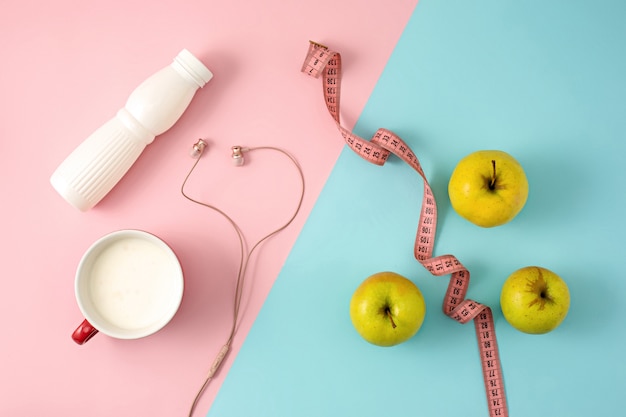
If you’re trying to lose weight, you might think counting calories and eating less is the way to go. But, according to Terry Fairclough, a top personal trainer and co-founder of Your Body Programme, that isn’t exactly true. As a PT, I’ve come across lots of different opinions on the best diet for weight loss. Is it all about counting calories? Should we be on a low-fat, low-carb, or high-protein diet? What about fasting, or eating small, regular meals three times a day?
Here’s the thing: while a big calorie deficit can cause weight loss, it doesn’t always mean you’ll lose fat, which is what most people want. These days, many of us consume more than we need. Cutting calories can be necessary because we often overeat, but just eating less isn’t the answer.
When we eat, our body converts carbs into glucose, a type of sugar and our main source of energy. If we don’t use it right away, our muscles and liver store it as glycogen, which is connected with water molecules. When we need a quick energy boost, or if we’re not getting enough glucose from food, glycogen breaks down to provide fuel.
So, what happens when you cut calories? You mainly lose water and stored carbs, not fat. A long-term calorie deficit can make your body hold onto fat while breaking down protein instead. Protein is crucial because it helps burn fat at rest, so it’s important to eat enough calories with a balanced mix of fats, carbs, and protein.
And if you think avoiding fat will help you lose it, think again. Fat is a vital and long-lasting energy source, offering more than twice the energy per gram compared to carbs or protein. We’re actually storing fat in our muscles, ready to be used during exercise.
Cutting calories drastically and skipping important nutrients can lead to deficiencies, harming your health and slowing your metabolism. Problems can include fatigue, malnutrition, hormone imbalances, and more. Extreme calorie restriction also stresses the body, causing it to release cortisol, a stress hormone. Although it might cause short-term weight loss, long-term stress results in the body holding onto fat.
If you’re not eating enough, your metabolism slows as your body tries to preserve energy. Poor nutrition affects how well you digest and absorb nutrients, impacting your health and workout results. Sleep can also suffer, as blood sugar drops prompt stress hormones that wake you up, leading to various health issues and weight gain.
Bodybuilders often cut calories to get lean but can face health issues if done wrong. When constantly restricting calories, the body can go into “famine mode,” making it tough to lose weight and more likely to store fat when you eventually eat more.
Ultimately, it’s crucial to eat the right amount of calories, carbs, fats, and protein for your specific body type, goals, and lifestyle. Your Body Programme helps people figure out their nutritional needs based on their body type, ensuring a healthy, balanced diet fuels optimal performance.
Eating well means consuming plenty of lean proteins, whole grains, and healthy fats from sources like avocado, nuts, and olive oils. By maintaining a balanced diet, you can keep your metabolism active and support healthy, sustainable weight loss.

